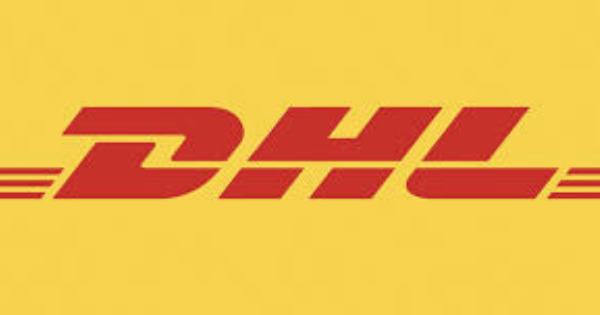News
DHL Replaces Microsoft as Most Imitated Brand in Phishing Attempts in Q4 2021

Check Point Research (CPR), the Threat Intelligence arm of Check Point® Software Technologies Ltd. and a leading provider of cyber security solutions globally, has published its new Brand Phishing Report for Q4 2021.

The report highlights the brands which were most frequently imitated by criminals in their attempts to steal individuals’ personal information or payment credentials during October, November and December.
For the first time, DHL took the number one spot in Q4, replacing Microsoft as the brand most likely to be targeted by cybercriminals in phishing scams. Twenty-three percent of all brand phishing attempts were related to the global logistics and shipping company, up from just 9% in Q3, as threat actors sought to take advantage of vulnerable online consumers during the busiest retail period of the year.
Microsoft, which yet again led the rankings in Q3 by accounting for 29% of all phishing attempts, only accounted for 20% of phishing scams in Q4. FedEx also appeared in the top ten list for the first time in Q4 2021, no doubt the result of threat actors trying to target vulnerable online shoppers in the run-up to the festive season as the pandemic remained a key concern.
The Q4 report also reinforces an emerging trend from Q3, with social media seeming to solidify its position among the top three sectors imitated in phishing attempts.
While Facebook has dropped out of the top ten brands most likely to be imitated, WhatsApp has moved from 6th position to 3rd, now accounting for 11% of all phishing attempts. LinkedIn has moved from 8th position to 5th, now accounting for 8% of all phishing-related attacks.
“It’s important to remember that cybercriminals are opportunists first and foremost. In their attempts to steal peoples’ personal data or deploy malware onto a user’s machine, criminal groups will often take advantage of consumer trends by imitating popular brands,” said Omer Dembinsky, Data Research Group Manager at Check Point Software.
“This quarter, for the first time, we’ve seen global logistics company DHL top the rankings as the most likely brand to be imitated, presumably to capitalize on the soaring number of new and potentially vulnerable online shoppers during the year’s busiest retail period.
“Older users in particular, who are less likely to be as technologically savvy as younger generations, will be shopping online for the first time and might not know what to look for when it comes to things like delivery confirmation emails or tracking updates.”
Omer continued, “Q4 has also confirmed what many of us were expecting. That social media would continue to be heavily targeted by bad actors looking to take advantage of those leaning more heavily on channels like WhatsApp, Facebook and LinkedIn as a result of remote working and other fallouts from the pandemic.
Unfortunately, there’s only so much brands like DHL, Microsoft and WhatsApp – which represent the top 3 most imitated brands in Q4 – can do to combat phishing attempts. It’s all too easy for the human element to overlook things like misspelt domains, typos, incorrect dates or other suspicious details, and that’s what opens the door to further damage. We’d urge all users to be very mindful of these details when dealing with the likes of DHL in the coming months.”
In a brand phishing attack, criminals try to imitate the official website of a well-known brand by using a similar domain name or URL and web-page design to the genuine site.
The link to the fake website can be sent to targeted individuals by email or text message, a user can be redirected during web browsing, or it may be triggered from a fraudulent mobile application. The fake website often contains a form intended to steal users’ credentials, payment details or other personal information.
Top phishing brands in Q4 2021
Below are the top brands ranked by their overall appearance in brand phishing attempts:
- DHL (related to 23% of all phishing attacks globally)
- Microsoft (20%)
- WhatsApp (11%)
- Google (10%)
- LinkedIn (8%)
- Amazon (4%)
- FedEx (3%)
- Roblox (3%)
- Paypal (2%)
- Apple (2%)
News
New Horizons Invests N50m to Empower Almajiris with Skills

New Horizons Nigeria has launched a N50 million initiative aimed at transforming 21 Almajiri children into skilled computer technicians within 90 days, to tackle youth unemployment and harness human potential.

The Almajiri-to-Tech programme, officially launched in Abuja on Monday, provides participants with full training, meals, clothing, tools, and logistics support, all fully funded.
Speaking at the launch, the Chief Executive Officer of New Horizons, Tim Akano, said the programme represents a new journey in the history of Nigeria by restoring the original purpose of the Almajiri system, which he described as “children sent out to seek knowledge.”
“The word Almajiri comes from an Arabic term meaning emigrant and seeker of knowledge. Historically, children were sent to learn morals, responsibility, and skills to add value to society,” Akano said.
He added that the disruption of this system during colonial times forced many children onto the streets, a challenge that persists today.
Akano highlighted the urgency of addressing the Almajiri issue, noting that there are an estimated 15 million Almajiris in the country, with a population growth rate of around three per cent annually.
“If we do not solve this problem as a country, we are sitting on a time bomb,” he warned.
According to him, the programme focuses on hands-on technical skills rather than theory. Trainees will learn to repair mobile phones, laptops, televisions, radios, standing fans, and other electronic devices, as well as build inverter batteries using recycled electronic waste.
“We are not teaching theory. We are teaching practical skills you can use to earn a living,” Akano said, stressing that the programme will not interfere with the participants’ Quranic education.
“We are still going to allow you, within the period of learning. Your learning computer here is not stopping your Quranic education.
“You still have time within our space here. Whenever you want to go and pray, you can pray, then come back to class,” the CEO stressed.
He added that participants will also receive daily meals, water, T-shirts identifying them as technicians-in-training, and access to all necessary tools and equipment throughout the 90-day programme.
Akano said the initiative is part of a larger mission by New Horizons Nigeria, which has spent the past 21 years training about 100,000 Nigerians annually in IT and related skills.
He said the new programme aims to “take human genius off the streets and convert it into human capital, enabling these youths to contribute meaningfully to the economy.”
He added that equipping Almajiris with skills could add 15 million people to Nigeria’s workforce and potentially increase the country’s GDP by as much as $20 billion, stressing that productivity depends on practical skills and opportunity.
“Everything that can be taught can be learned. If someone can memorize the Quran cover to cover, there is nothing that cannot be done. What they lack is information, opportunity, and infrastructure, and we are providing all of that,” Akano said.
Akano also stressed that the initiative is designed to inspire other organizations and government agencies to replicate similar programmes across the country.
“This is not just about 21 children; it is about showing Nigeria what is possible when resources meet intention and planning.
“If we succeed in empowering these Almajiris, we demonstrate that the country can turn social challenges into economic opportunities. It’s a blueprint for Nigeria’s future,” he said, noting that the initiative combines social reform, technical education, and economic empowerment.
Also speaking, one of the trainees, Fatima Umar, appreciated the organisers and promised to maximise the opportunity.
“We’ll make you proud of us. We have nothing to say here but to thank and appreciate you. May Almighty Allah continue to guide and protect you,” Umar said.
News
IMF Upgrades Nigeria’s 2026 Growth Projection to 4.4%

International Monetary Fund has upgraded Nigeria’s 2026 economic growth projection to 4.4 per cent, reflecting improved macroeconomic stability and sustained reforms.

IMF
The January 2026 World Economic Outlook Update forecasts Nigeria’s growth trajectory at 4.1 per cent in 2024, 4.2 per cent in 2025, and 4.4 per cent in 2026—a 0.2 percentage point increase from the October 2025 estimate.
This aligns with sub-Saharan Africa’s projected 4.6 per cent expansion in 2026 and 2027, driven by regional stabilisation efforts.
Globally, the IMF anticipates 3.3 per cent growth amid resilient conditions tempered by trade policy shifts and technology investments. For Nigeria, declining energy prices—expected to fall seven per cent due to weak demand—pose risks, though OPEC+ coordination and China’s stockpiling provide support.
Despite the optimism, downside risks persist from Middle East and Ukraine tensions, protectionism, high debt, and fiscal deficits. The Fund recommends rebuilding fiscal buffers, ensuring central bank independence, and limiting temporary fiscal measures to maintain stability.
Nigeria’s success hinges on consistent reforms and resilience against domestic and global shocks, the IMF concluded.
News
Nigeria’s Crude Output Falls to 1.486mbpd in November – OPEC

Organisation of Petroleum Exporting Countries (OPEC) reports that Nigeria’s crude oil production, excluding condensate, dropped by 0.7 per cent to 1.486 million barrels per day (mbpd) in November 2025 from 1.496 mbpd in October.

OPEC
The figure, drawn from secondary sources in OPEC’s December 2025 Monthly Oil Market Report, fell short of Nigeria’s 1.5 mbpd quota. Direct communication data showed output at 1.436 mbpd, up from October’s 1.401 mbpd, but still below target.
Nigeria produces around 196,028 bpd of condensate, excluded from quota calculations per Nigerian Upstream Petroleum Regulatory Commission figures. Year-on-year, November’s output marked a slight gain over 1.417 mbpd in November 2024.
Expert Cites Insecurity, Governance Gaps
Petroleum economics expert Wumi Iledare described the quota miss as unsurprising, blaming persistent insecurity, an ageing oil basin lacking new finds, and unoffered hydrocarbon blocks. Governance shortcomings and policy uncertainty further erode investor confidence, he noted.
Selective implementation of the Petroleum Industry Act worsens the situation, with Nigeria needing a single authoritative leader for the sector rather than multiple proxies, Mr Iledare stressed. The country has struggled to consistently hit OPEC targets for years.

 E-Financial2 days ago
E-Financial2 days agoHere Are Nigerian Banks That Have Secured Their Licences

 Telecom2 days ago
Telecom2 days agoMTN CEO Toriola Hails Nigeria’s Telecom Transformation at MIPAD

 E-Financial2 days ago
E-Financial2 days agoZenith Bank Top Nigerian Bank Pick Ahead of GTCO, AccessCorp

 News2 days ago
News2 days agoICPC Charges Ozekhome with Forgery, Corruption Over London Property

 E-Financial2 days ago
E-Financial2 days agoNigeria Processed $92.1Bn Crypto Transactions in 12 Months — PwC

 Telecom2 days ago
Telecom2 days agoLebara Launches Agent Registration Portal

 E-Financial2 days ago
E-Financial2 days agoHow Crypto Criminals Stole $700m from People – often Using Age-Old Tricks

 E-Business2 days ago
E-Business2 days agoElon Musk Seeks $134Bn from OpenAI, Microsoft for ‘Wrongful Gains’
























